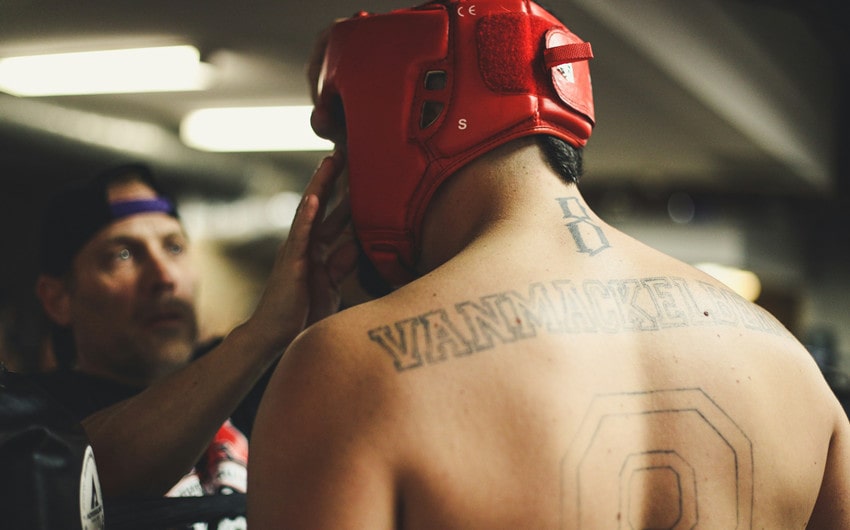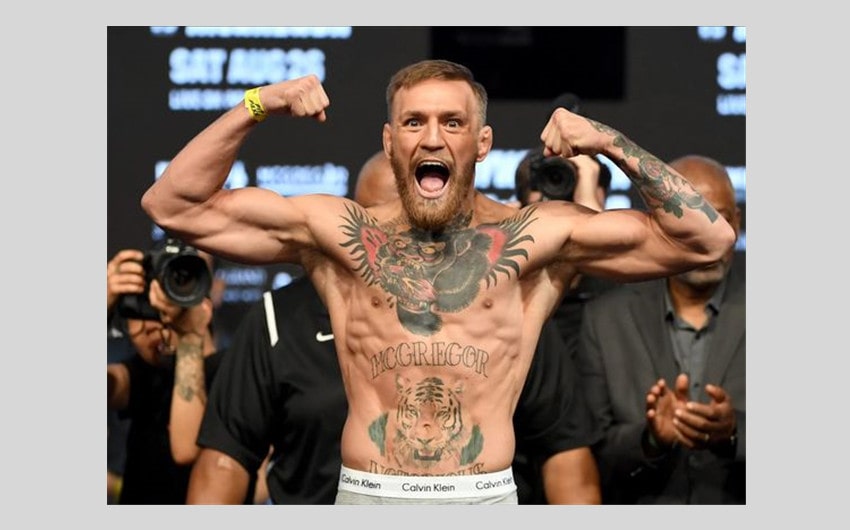How Much Do UFC Fighters Get Paid? A Detailed Breakdown
Many fans often ask the question: how much do UFC fighters get paid? The answer depends on their experience and performance. New fighters may earn around $12,000 per fight, while top champions can bring in millions with bonuses and pay-per-view shares. From the big names to those just starting out, UFC fighter pay varies greatly.
If you’ve ever wondered how much these athletes really make when they step into the Octagon, this article will break down the details, from base salaries to bonuses and extra earnings, offering a clear look at what it takes to make money in the UFC.
What is the Average Salary of a UFC Fighter?

The average salary of a UFC fighter varies depending on their experience, ranking, and popularity. Entry-level fighters, often with just a few fights in the UFC, typically earn around $12,000 to $20,000 per fight, excluding bonuses. Mid-tier fighters who have gained some recognition and wins may make between $50,000 and $100,000 per fight.
For well-known fighters who frequently compete on main cards, their base salary can exceed $200,000 per fight. However, it’s important to note that UFC pay is not a one-size-fits-all figure; each fighter negotiates their own contract, which can lead to significant variation in pay even within the same experience level. On average, UFC fighters earn around $50,000 per year, but many rely on bonuses and sponsorships to significantly boost their income.
How Much Do UFC Fighters Make per Fight?
UFC fighters earn their money on a per-fight basis, with paychecks coming from a combination of a base salary and potential bonuses. For instance, a fighter might have a contract guaranteeing them $12,000 for stepping into the Octagon, but if they win the fight, they could earn an additional $12,000 in a win bonus.
Beyond this, fighters can earn performance-related bonuses, such as “Fight of the Night” or “Performance of the Night,” which award an extra $50,000. Main event and high-profile fights, especially on pay-per-view cards, can dramatically increase fighter earnings. For top-level fighters, especially those with bigger fan followings or fighting in main events, pay-per-view points can add thousands to millions of dollars on top of their fight purse, depending on the event’s success.
How Much Do UFC Champions Get Paid?
UFC champions are among the highest-paid fighters in the sport, and their pay reflects their status. Champions typically earn a much higher base salary than non-champions, often starting at $500,000 per fight, with some champions earning well over $1 million for a single fight. In addition to their guaranteed purse, champions often receive a share of the pay-per-view revenue, known as PPV points, which can significantly boost their income.
For major events that attract millions of viewers, these PPV points can add millions to a champion’s earnings. Bonuses for winning and performing well are also common, and these fighters often have lucrative endorsement deals that further enhance their overall pay. In short, UFC champions can make anywhere from $1 million to $10 million or more per fight, depending on their popularity and the scale of the event.
Who Are the Highest-Paid UFC Fighters?

Image source: Pinterest
The highest-paid UFC fighters are those who have not only excelled inside the Octagon but have also built significant personal brands, drawing massive pay-per-view audiences and securing lucrative endorsement deals. While fighter earnings vary from year to year based on fight schedules and PPV buys, there are a few standouts who consistently rank at the top of the pay scale.
1. Conor McGregor
Conor McGregor is undoubtedly the highest-paid UFC fighter in the organization’s history. Known for his sharp skills, brash personality, and marketability, McGregor has earned millions from his UFC fights. His base salary often exceeds $3 million per fight, but the bulk of his earnings comes from PPV shares.
For his fight against Khabib Nurmagomedov in 2018, McGregor reportedly made over $50 million after PPV and sponsorship earnings were calculated. Outside the Octagon, McGregor’s business ventures, including his whiskey brand Proper No. Twelve, have significantly added to his wealth, making him one of the richest athletes in the world.
2. Khabib Nurmagomedov
Before his retirement, Khabib Nurmagomedov was also among the highest-paid UFC fighters. His final fight against Justin Gaethje in 2020 reportedly earned him $6 million, excluding PPV earnings.
Known for his undefeated record and disciplined fighting style, Khabib’s massive following in Russia and across the globe helped boost his pay-per-view numbers, making his fights highly profitable. Like McGregor, Khabib also earned through sponsorships and endorsements, adding to his overall earnings during his time in the UFC.
3. Israel Adesanya
Current middleweight champion Israel Adesanya has quickly become one of the UFC’s top earners. Adesanya’s charisma, fighting skills, and undefeated streak for much of his career have made him a fan favorite and a top draw for PPV events.
Reports suggest that Adesanya earns between $500,000 and $1 million per fight in base salary, with additional earnings from PPV points and performance bonuses. In 2021, Adesanya signed a multi-fight contract with the UFC, which made him one of the highest-paid fighters in the sport.
4. Jon Jones
Another big name on the UFC’s highest-paid list is Jon Jones, who has been a dominant force in the light heavyweight division. Known for his extraordinary talent inside the Octagon, Jones has consistently been one of the top earners, particularly in PPV events.
Although Jones has had long periods of inactivity due to legal and personal issues, his fights have generated huge interest. For his fights, Jones reportedly earns around $500,000 to $1 million in base salary, with his total earnings often reaching several million dollars per fight due to PPV shares.
5. Jorge Masvidal
Jorge Masvidal’s meteoric rise to fame, especially after his iconic five-second knockout of Ben Askren, has made him one of the UFC’s top earners. Masvidal’s personality and fight style have made him a fan favorite, and his fight against Nate Diaz for the BMF (Baddest Motherf***** Title) in 2019 earned him millions. Masvidal reportedly made over $1 million for his fight against Kamaru Usman at UFC 251, with additional income coming from PPV points and sponsorship deals.
6. Ronda Rousey
Though retired, Ronda Rousey was once among the highest-paid fighters in UFC history. As the first woman to sign with the UFC and a trailblazer in the sport, Rousey earned a hefty salary for each fight, with some reports suggesting she earned over $3 million for her final fight against Amanda Nunes. Rousey’s appeal transcended the Octagon, with numerous endorsements and movie roles, making her one of the most financially successful UFC athletes of her time.
7. Dustin Poirier
Dustin Poirier has consistently been one of the highest-paid UFC fighters, particularly after his thrilling bouts with Conor McGregor. Poirier earned approximately $1 million for each of his fights against McGregor in 2021, with additional PPV bonuses likely boosting his earnings substantially. His popularity as a fan-favorite fighter, combined with his willingness to take on big challenges, has cemented him as one of the top earners in the UFC today.
How Do UFC Fighters Earn Bonuses?
UFC fighters have several opportunities to earn bonuses that can significantly boost their overall pay, making bonuses an important part of the income for many fighters. The UFC offers various types of performance-based bonuses that reward fighters for exceptional performances or thrilling fights. Here are the main types of bonuses UFC fighters can earn:
Fight of the Night
This bonus is awarded to the two fighters who put on the most exciting fight on the card, regardless of the outcome. Both fighters receive an additional $50,000 if they are chosen for this honor. The “Fight of the Night” bonus is meant to reward fighters who engage in action-packed, fan-favorite fights.
Performance of the Night
“Performance of the Night” bonuses are awarded to fighters who deliver standout performances, such as securing a quick knockout or submission. Two fighters on each card usually receive this bonus, which also amounts to $50,000 each. This encourages fighters to finish their fights in spectacular fashion, rather than relying on judges’ decisions.
Discretionary Bonuses
Beyond the official “Fight of the Night” and “Performance of the Night” bonuses, UFC president Dana White and the UFC executives sometimes award additional discretionary bonuses. These bonuses are not publicly disclosed and can vary in amount, but they are given to fighters who impress UFC leadership. Discretionary bonuses can be a significant boost for a fighter who delivers an exceptional performance.
Win Bonuses
Many UFC fighters also have win bonuses built into their contracts. A fighter may have a base pay for simply showing up to fight, but if they win the match, they can double their paycheck. For example, if a fighter is contracted to make $20,000 per fight, winning the fight would typically add an additional $20,000 to their earnings. These bonuses can make a big difference, especially for lower and mid-tier fighters.
Submission or Knockout of the Night (Legacy Bonus)
While this bonus has mostly been replaced by the “Performance of the Night” bonus, in the past, fighters could earn an extra $50,000 for delivering the best submission or knockout of the event. Though no longer an official category, impressive knockouts and submissions can still earn fighters the “Performance of the Night” bonus today.
Do UFC Fighters Get Paid More for Pay-Per-View Events?

Yes, UFC fighters can earn significantly more when participating in Pay-Per-View (PPV) events. While all UFC fighters earn a base salary per fight, the structure changes dramatically for high-profile fighters who take part in PPV events. The biggest way fighters can earn more from these events is through PPV points.
What Are Pay-Per-View (PPV) Points?
PPV points are essentially a share of the revenue generated from fans purchasing the pay-per-view event. Only the top-tier fighters—usually champions or headliners—receive these points. For example, a fighter might be promised $1 for every PPV sold after a certain threshold, typically around 200,000 buys. For major UFC events that attract over a million buys, this can amount to millions of dollars in additional income for the fighters.
Main Event Fighters
Fighters who headline the main card of a PPV event are usually entitled to PPV points, which can drastically increase their earnings. For example, fighters like Conor McGregor and Khabib Nurmagomedov have earned millions due to the high number of PPV buys their fights have generated. These fighters typically also receive a higher base salary compared to those on non-PPV cards.
Co-Main Event Fighters
Even fighters in the co-main event (the second most important fight of the night) may receive PPV points, though this is less common and usually reserved for well-known fighters or championship bouts. Co-main event fighters still benefit from being on a PPV card due to higher visibility, which can lead to increased future earnings.
Non-PPV Fighters
Fighters who are not on PPV cards or do not have PPV points built into their contracts still receive their base pay and potential win bonuses. However, being on a PPV card, even without PPV points, increases a fighter’s exposure and potential for future high-paying opportunities.
Do UFC Fighters Make Money from Sponsorships?
Yes, UFC fighters can make additional income from sponsorship deals, although there are restrictions. In 2015, the UFC signed an exclusive sponsorship deal with Reebok (now with Venum), which significantly changed how fighters earn from sponsorships. Here’s how the current system works:
Venum Sponsorship Pay
Under the UFC’s Venum sponsorship deal, fighters are paid based on their experience and the number of fights they have had in the UFC. This sponsorship deal provides a tiered payout system, with fighters earning between $4,000 and $42,000 per fight, depending on their rank and tenure.
New fighters earn less, while champions receive the highest amount. While this limits fighters’ ability to individually sign their own sponsorships for UFC events, it guarantees a fixed amount of sponsorship money for every fighter.
Additional Sponsorship Deals
Although fighters can no longer wear their own sponsor’s logos during UFC events, they can still secure personal endorsement deals outside the Octagon. Fighters can promote products on their social media, at appearances, or in advertisements.
Popular fighters like Conor McGregor and Israel Adesanya have landed lucrative deals with major brands, earning them millions in additional income. The more popular and marketable a fighter is, the more sponsorship opportunities they tend to receive.
What Other Expenses Do UFC Fighters Have to Cover?
Although UFC fighters can earn significant paychecks, they are also responsible for many expenses that can eat into their income. These costs include:
Training Camps
Training for a UFC fight can be expensive, especially for fighters who work with elite coaches, trainers, and sparring partners. Fighters often pay for full training camps, which can last 8 to 12 weeks, to prepare for their upcoming bouts. Training expenses typically include paying for gym fees, strength and conditioning coaches, nutritionists, and specialized coaches for boxing, wrestling, jiu-jitsu, and other martial arts disciplines. High-level fighters may spend thousands of dollars on a single camp.
Coaches and Manager Fees
Fighters are also responsible for paying their coaches and managers. Coaches typically receive a percentage of the fighter’s purse, often around 10% of the total fight earnings. Managers, who negotiate contracts and handle business deals for the fighters, may take an additional 10-20%. These fees can add up, particularly for fighters who do not earn large sums from each fight.
Travel and Accommodations
While the UFC covers some travel expenses, fighters and their teams often need to pay for additional accommodations and travel, especially for international fights. Depending on the size of the team a fighter brings, these costs can add up quickly, and any extra costs outside of what the UFC covers are typically the fighter’s responsibility.
Medical Expenses
Fighting is a physically demanding sport, and UFC fighters often face injuries that require medical attention. While the UFC provides some insurance and covers medical expenses related to injuries sustained during fights, fighters may have to pay out-of-pocket for additional treatments, physical therapy, and rehab after a fight. Moreover, fighters often undergo regular medical checkups, testing, and physicals to ensure they are fight-ready, and these costs are generally borne by the fighters.
Taxes
Like any other professional athletes, UFC fighters are responsible for paying taxes on their earnings. Depending on the location of the fight, taxes can vary, and fighters must manage federal, state, and sometimes international taxes on their income. Given the size of their earnings, taxes can take a significant portion of a fighter’s total pay.






